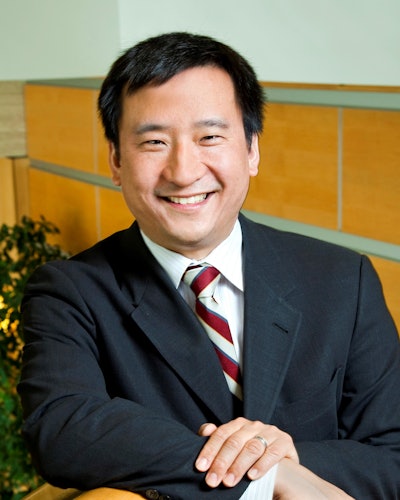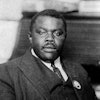The random encounters of strangers are among the best means to assess attitudes about race. I was traveling through China before the holidays, and I witnessed a moment that revealed the complexities of the subject. At one of the Beijing railway stations, a Chinese man pushed his way through the crowd waiting to board the express service to Shanghai, in order to request through gestures that an African-American tourist pose with him for a selfie. While he had a sincere smile and left satisfied, one of the Chinese with whom I was traveling, a young lady who has studied in America, felt awkward, as if her cosmopolitanism had been compromised by her countryman.
The African-American fellow, with whom I then struck up conversation as we inched forward among the many passengers jostling to make their way through the turnstile, shrugged it off with great forbearance. He was from Kansas City, celebrating his birthday, enjoying the sights. He had been treated as an exotic specimen. Yet probably he had experienced worse (We talked about the egg on hamburger sandwich available as a special at Chinese outlets of an American fast food chain, but not back home).
I realized that I cannot judge. It would be wrong to suppose the Chinese were represented by that snapshot. The individual who wanted the memento had some sort of motivation invisible to me but compelling him to approach a Black person, in particular. I remember when the Chinese would shout at foreigners on the street, not kindly at all. I also have read reports of rioting against African students, not long ago. Whites had other odd experiences. I observed crowds forming to take a snapshot with my nephew, a “big White baby,” on the Great Wall at the turn of the millennium, to the annoyance of his mother, a petite blonde Englishwoman fluent in Mandarin, and amusement of his father (my brother), an assimilated Chinese American. That was before White people — or mixed persons — became so common at such destinations.
 Frank Wu
Frank WuYet I, too, would be stereotyping in turn if I inferred too much from an isolated incident. This was one guy approaching another guy. Their interaction was on the whole positive. Chinese and African-Americans have admired one another: Chairman Mao was a hero to some Black Panthers in a forgotten aspect of the global history of revolutionary movements. Chinese also remember the privileges of colonialism, accorded European and other white foreigners in Shanghai and Hong Kong. Americans who are not black hold ample invidious prejudice toward blacks, and I am sure I am no exception in terms of implicit bias. Chinese differentiate internally among Chinese by province, dialect, ethnicity, and faith, even if outsiders would deem them all to look alike.
American principles and Chinese traditions are not the same. It would be presumptuous to insist on the former over the latter, especially within China. There remain many discrepancies between American norms and Chinese norms, and between American norms and American daily life. That is true on many issues.
None of these reflections is meant to excuse the dangerous assumptions people make based on skin color. It is instead a reminder to self to be humble and avoid self righteousness. For me to scold a Chinese person in China, however silently and even if I share Chinese ancestry, would be arrogant, making obvious an American sense of privilege. My American identity is most apparent in the China of my ancestors.
The problem in this situation is that there is no truly neutral vantage point. Our attitudes cannot help but have an origin. We believe ourselves enlightened, but others may well look upon us as we do our predecessors. Scientific racism was regarded as objective in its day, because all facts have their own framing. We will violate our own ideals, if we apply them carelessly to those who never consented to the same principles.
For that matter, I admit to relying on a form of profiling in China. I approach non-Asians on the street to ask directions or for answers to other questions, since I am not fluent in the language of my forebears. A Zimbabwean student, for example, explained to me how to queue properly at the next train station along my journey. I had figured he would be more likely to comprehend English when I bypassed a dozen Chinese to direct an inquiry to him about how to do business at the ticket counter. He didn’t regard that as an insult. I was hoping for help from him rather than planning to oppress his people. We chatted while waiting about why he had come to China. He was betting on the future. He also couldn’t afford tuition in the States.
Perhaps the most unusual breach of American etiquette against group generalizations is the Chinese admiration of Jews. There is a popular Chinese embrace of Jewish culture. Dozens of new programs have been established at Chinese universities in the discipline of Jewish studies. Yet as some have noted with a bit of uneasiness, the Chinese have essentially taken the characteristics ascribed to Jews by anti-Semites and given them a positive interpretation. The Chinese talk about Jewish dominance of global finance, Jewish political influence in America, and Jewish contributions to Hollywood, with the same exaggerations as those who would react most negatively, except the Chinese respond most positively, declaring they wish to do what Jews have done. The Chinese fascination is itself fascinating. It has been wholesome to this point.
My personal conclusion, which I would not impose, is that what is most important is openness, engagement, and doubt about especially what I am certain of. Everything matters in race matters: intent, context, power, and history. As there is a diversity of people, there is a diversity of opinion. More than one understanding of race may be rational and moral.
Frank H. Wu is the William L. Prosser Distinguished Professor at the University of California Hastings College of the Law. You can follow him on Twitter @Frankhwu



















